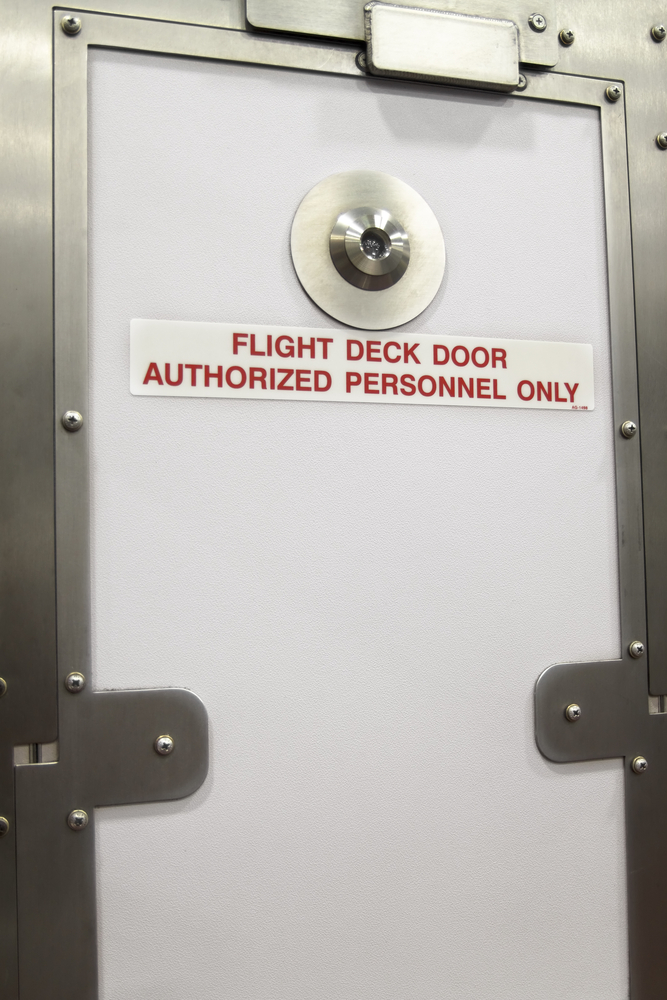
A bipartisan bill recently introduced in the U.S. House would require the installation of secondary cockpit barriers on existing commercial aircraft to prevent terrorist attacks.
The barriers would be lightweight wire-mesh gates installed between the passenger cabin and the cockpit door. The gates block access to the flight deck whenever the cockpit door is opened during flight. They cost between $5,000 and $12,000.
The bill, Saracini Enhanced Aviation Safety Act of 2019, is named after Captain Victor Saracini, one of the pilots killed on Sept. 11, 2001, when his hijacked jet was flown into the South Tower of the World Trade Center.
The bill was introduced by Reps. André Carson (D-IN), Brian Fitzpatrick (R-PA), Josh Gottheimer (D-NJ) and Peter King (R-NY).
“Ensuring the safety of our nation’s aircraft is paramount to protecting the American public,” Fitzpatrick said. “The previous Congress made progress in ensuring that future commercial aircraft are equipped with secondary barriers, and we must build on that momentum to include existing commercial aircraft.”
Passage of the bill will ensure that every passenger is protected against cockpit incursions, Carson said.
An amendment to the FAA Reauthorization Act of 2018 requires a secondary barrier to be installed on all newly manufactured aircraft.